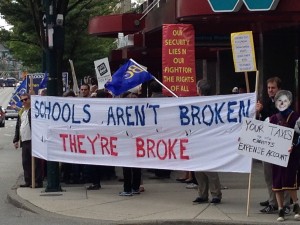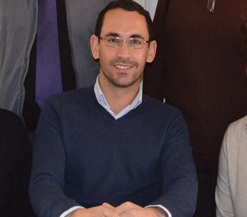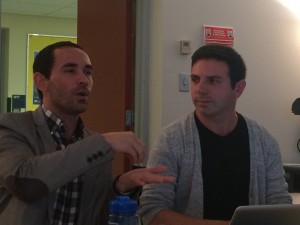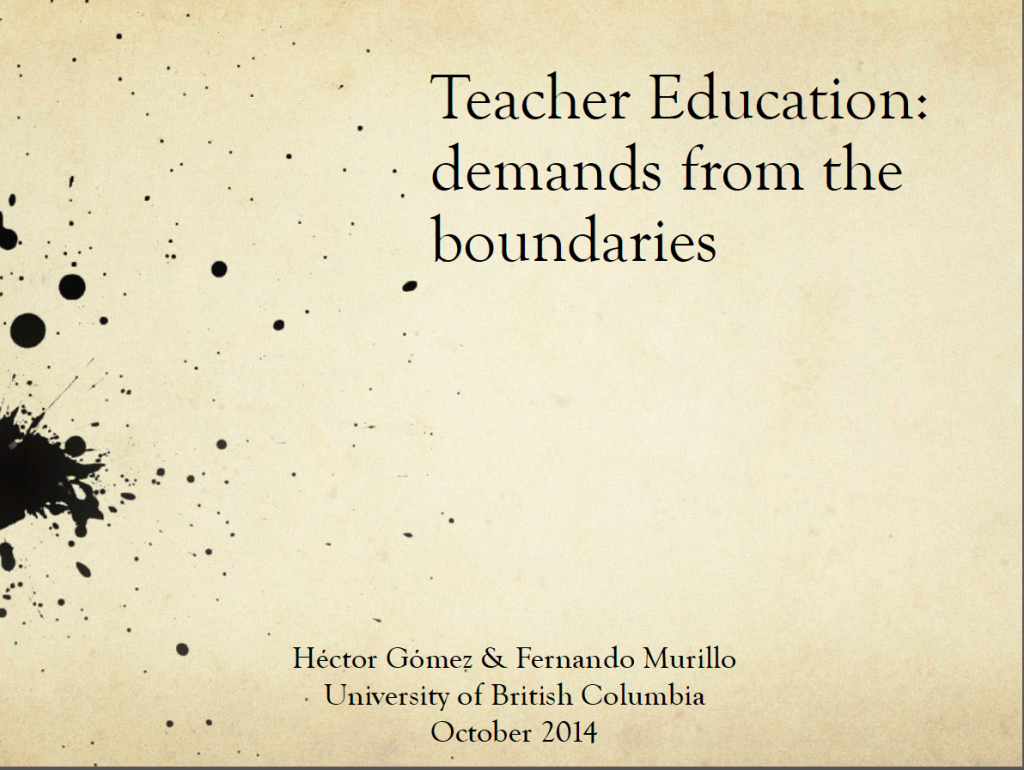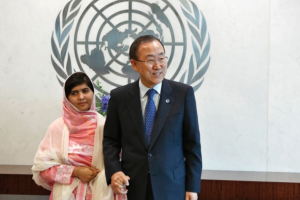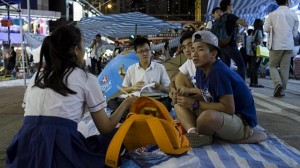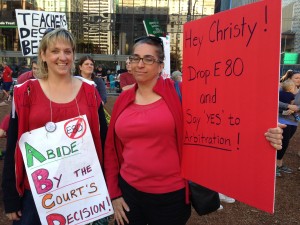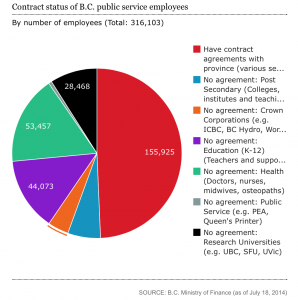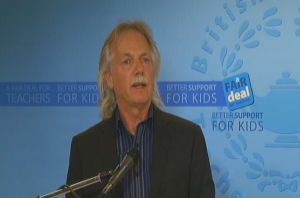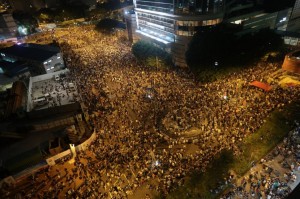
Yoichi Shimatsu, New American Media, October 3, 2014– Hong Kong – On both sides of the barricades blocking this city’s streets, media pundits from New York and Beijing assert that the protests in Hong Kong arise from demands for greater autonomy. Completely unnoticed is a major demographic shift in the region’s population, which is redefining the issues that motivate the younger generation to shut down this global financial center.
The leadership and activist numbers are coming from Generation ’97, young people born during the 1997 handover of the then-British Crown colony to Chinese sovereignty. These youngsters, most still in the secondary level (high school), are finding themselves at the forefront of a populist struggle for electoral rights. They are motivated by anxieties about local identity and a consequent need for better representation, reflecting attitudes that differ subtly but significantly from the traditional opposition parties.
Leadership of the democracy movement was suddenly thrust onto this youth cohort before the protests, when a corruption scandal broke involving the controversial publisher of the Apple Daily press paying illegal contributions to politicians in the opposition parties. The Independent Commission Against Corruption investigation turned up examples of pocketing of unreported donations for personal gain. This corruption further taints the image of a pan-democratic alliance that was already divided by rivalries and unexplained dropouts prior to the street protests.
Underlying the youth movement’s strategy of civil disobedience is a deepening distrust of their pre-1997 elders in both camps, who operate in a political culture of “deal-making” and an elitist obsession with property and wealth, regardless of political affiliation. What the young radicals confronting tear gas and riot police reject is the selling out of Hong Kong’s unique way of life to the highest bidder, whether wealthy businessmen from China or globalist financial corporations.
In contrast with the figureheads of the opposition parties, these youth are not aligned with Britain or the United States, but are battling instead for their own Hong Kong as the last bastion of Cantonese culture. For that goal, the ever-increasing ranks of post-1997 youth realize the vital importance of equal voting rights to chose leaders who will represent the people of Hong Kong, especially the poor and disadvantaged, and not just its wealthy elite.
A manga antihero
The most charismatic figure to emerge from the youth movement is Joshua Wong, one of four student leaders of Scholarism, a political front of high school students and college freshmen. The Gen ’97 teen activists with Scholarism are the driving force behind the street protests, overshadowing the Occupy Central organizers and their seniors in the Federation of Hong Kong University Students.
These secondary schoolchildren are prepared to cast away university admission and promising careers — unimaginable sacrifices in this upwardly mobile society that cherishes education above all — in their commitment to political rights. By making the unthinkable break with traditional values in a conformist urban society, the rebellious youth have shocked anxious parents, unionized workers and the lower middle class of this Cantonese-speaking city into worried support with food donations, cash, praise and admiration. The example of teenagers holding out against tear gas has convinced many formerly passive residents to take a stand on the streets.
Joshua, 17, shows a precocious understanding of the complexities of Hong Kong politics, and yet remains adamant in remaining an outsider to the establishment. His strong commitment to street agitation is not based on an alpha male image from kung fu movies. To the contrary, the slim teenager is modest and soft spoken, while succinct in explaining his viewpoints. A Bruce Lee-style bowl cut touches his wide-set almond eyes, which are exactly like those of maverick antiheroes in Japanese comics known as manga. This lad is clearly the role model for young people across East Asia, who are disaffected by traditional career paths, choose a variety of lifestyles and are tuned in to social media.
“I admit it’s annoying to hear nothing but Mandarin in the metro instead of Cantonese,” he says, “but I am not a right-winger who makes comments against visiting mainlanders.” His statement should come as a surprise to the National People’s Congress in Beijing, whose worst nightmare is the electoral victory of an anti-China secessionist figure. Out of these gut-level fears, the NPC voted unanimously to require all nominees to gain its approval before the 2017 election of a new Chief Executive, the highest position in Hong Kong.
In contrast to the leaders of the opposition parties, or Hong Kongers who emigrated to Canada or Britain before 1997, Scholarism members simply do not have any personal memory of UK rule, and therefore hold no attachment to the British lifestyle that the last royal governor Chris Patton mistakenly referred to as “the Hong Kong way of life.” Gen ’97 accepts the “one country, two systems” formula as a fact of life. It is the only political order they have ever known.
“The relationship between Hong Kong and the People’s Republic of China cannot be amended at this late stage,” Joshua explains. “There is no other road than ‘one country, two systems’.” By the same token, he adds, “Under that formula, our first priority is equality for all residents, and this means greater equality in the electoral system. We cannot let our common future be determined by a 1,200-member election committee instead of by the 7 million people of Hong Kong.”
Read More: Truthout
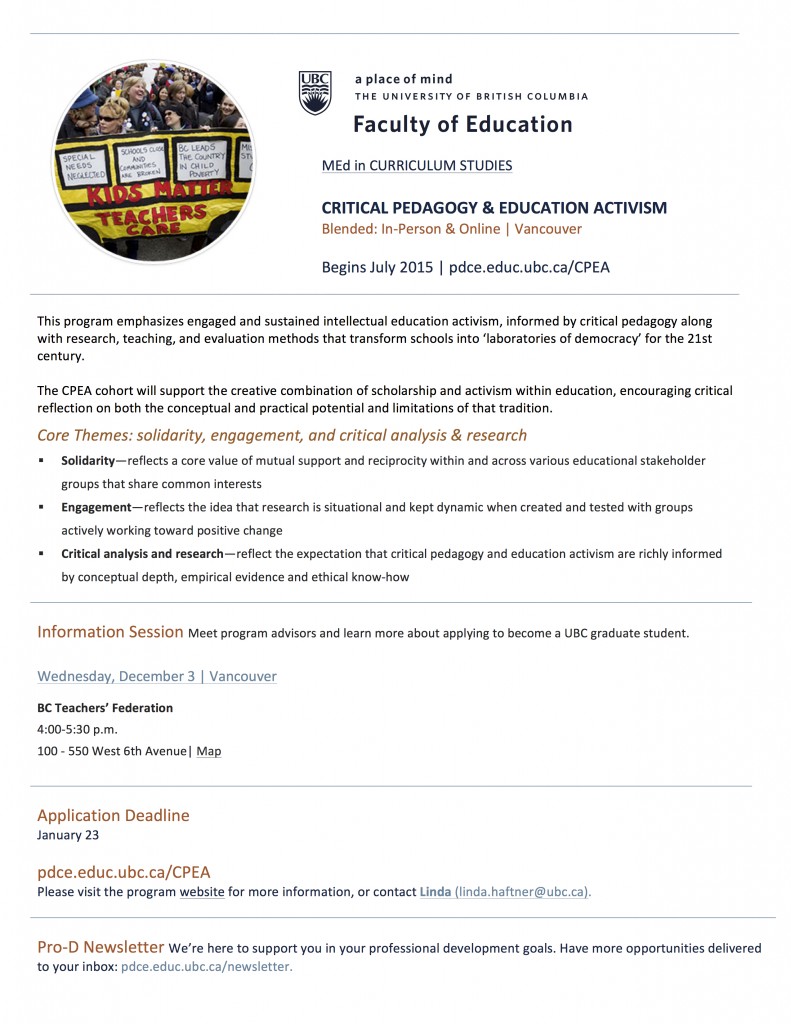 Download poster PDF
Download poster PDF
 Follow
Follow


